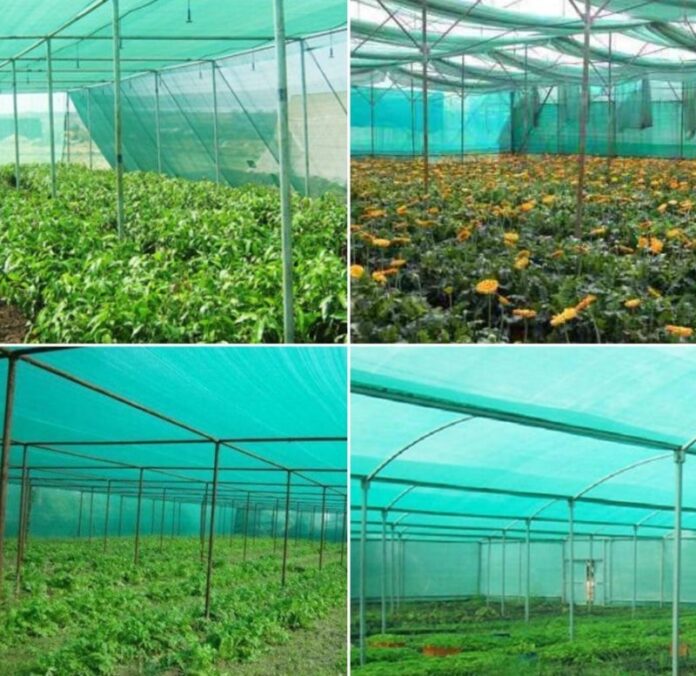Ghana was banned from exporting vegetables to the EU market in 2014. Although the ban was lifted in 2017, the country’s vegetable sector has not recovered from its negative impact in terms of production and export.
Before the ban – which was caused by non-compliance with sanitary and phytosanitary requirements, Ghana was the largest exporter of fresh chili to the United Kingdom (UK), exporting 1,903 metric tonnes valued at US$ 5.2 million per annum. However, the value of chili exports took a nosedive, dropping to US$87,000 in 2021 – approximately 0.5 percent of the worldwide market share.
But in an effort to resuscitate the ailing sector, the Ghana Incentive-based Risk-Sharing System for Agricultural Lending (GIRSAL), in collaboration with its technical and funding partners, has embarked on a commercial trial of the vegetable, using a basic agricultural technology known as net house.
The net house technology is a form of protected cropping structure that offers an ideal environment for plant growth while protecting them from foreign elements and pests.
Chief Operating Officer at GIRSAL, Takyi Sraha, explained to the B&FT that the project is to establish and validate the concept of a business case for commercial-scale chili production in net houses by establishing production protocols and determining the cost of setting up production equipment and infrastructure and using the results of the trial to advocate private sector investment in vegetable production.
Mr. Sraha noted that using this less costly but effective technology for chili production can significantly improve the quality and quantity of yield, making it more marketable as there is a reduction in reliance on pesticides.
“It is easier to install, low-cost, and better suited for warmer climates compared to greenhouses. This technology reduces the risk of insect pest invasion as it uses insect-proof nets, and minimises wind damage and water stress during warm, dry, and windy conditions,” he elaborated.
According to him, the GIRSAL project has identified four locations for commercial trials, namely Ziope and Woadze in the Volta Region, Kyekyewere in the Eastern Region as well and the Dahwenya Irrigation Site in the Greater Accra Region.
“Currently, the pilot has been rolled out in trial production of the Birds Eye variety of chili on a 0.4-hectare net house at the Agri Impact Greenhouse Enclave in Dawhenya,” he said.
Highlighting the core objectives guiding GIRSAL’s operation, he said the company was set up to de-risk financing to the agricultural sector by financial institutions and by so doing, stimulate investment. “As a limited liability company owned by the government, we have the credit risk guarantee facility which we use to support the banks to lend to the agricultural sector. We also have the technical assistance facility, which we use to build the capacity of the banks to understand agriculture and agribusiness so that they will feel confident lending to this sector.”
With respect to the market potential of chili, Mr. Sraha indicated that the country has an estimated untapped world market potential of US$ 380 million over a five-year period. He attributed its demand increase in Europe to the growing popularity of ethnic cuisines that use chilies as a key ingredient in their recipes as well as the growing cultural diversity of the world.
He was optimistic that with adequate capital investment and adoption of the net house system, the country could rake in about US$ 30 million from chili export annually.
“Based on our budget and analysis, the margins would be so high to cover the cost of production. We are expecting to get not less than US$48,000 from a hectare of the chili pilot. Cultivating just 100 hectares using the net house system will give you US$ 4.8 million, according to our cost-benefit analysis,” Mr. Sraha explained.
He noted that the pilot project has the potential to make a significant impact on Ghana’s vegetable industry, helping to recapture the lost international market share while improving the quality of chilies produced.
As the chili export business charts a recovery from a series of setbacks and predicaments occasioned by the ban, it has become necessary that it prioritises the adoption of sustainable practices to enhance and protect yields from pests and diseases in order to meet export requirements.








